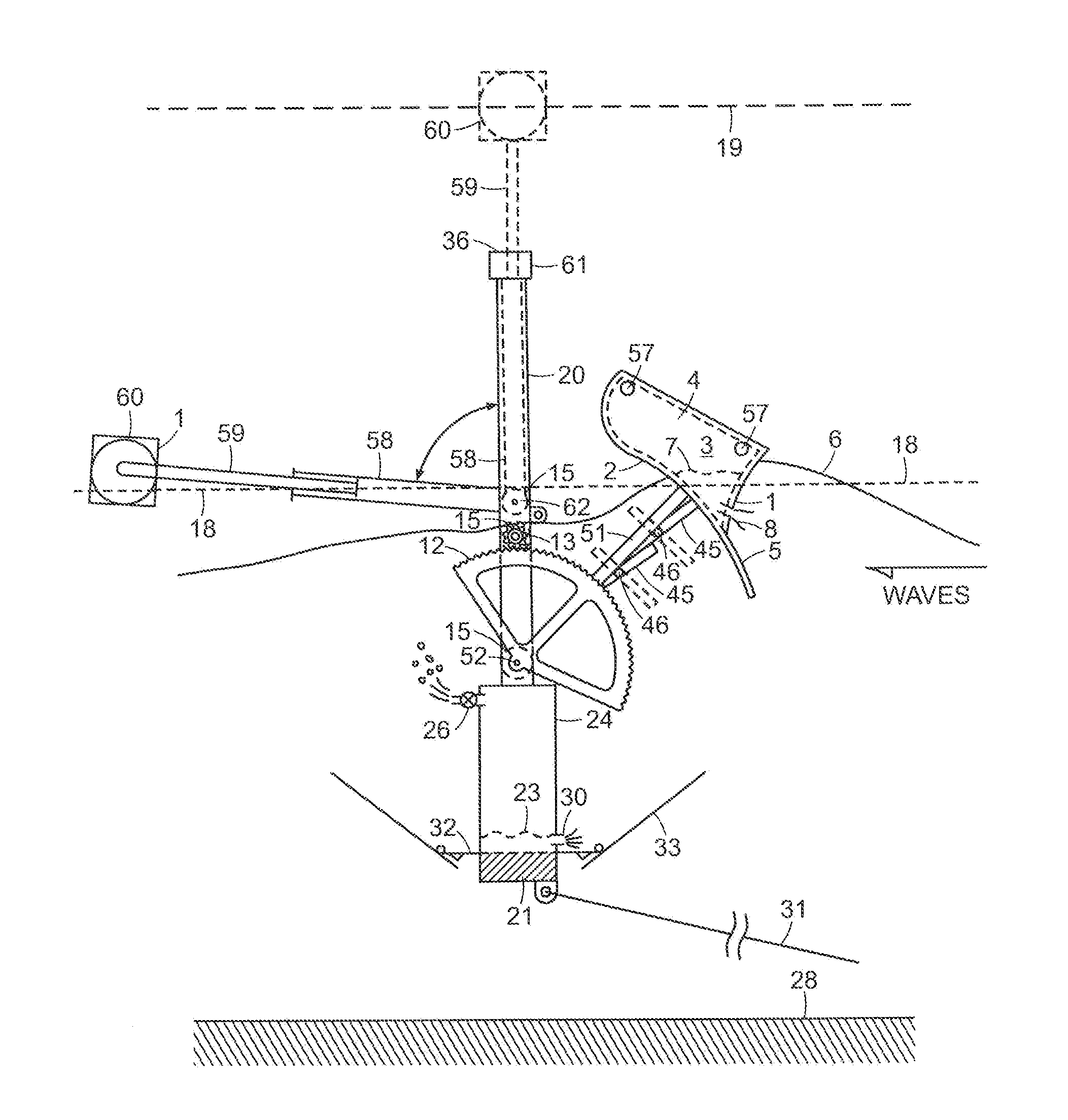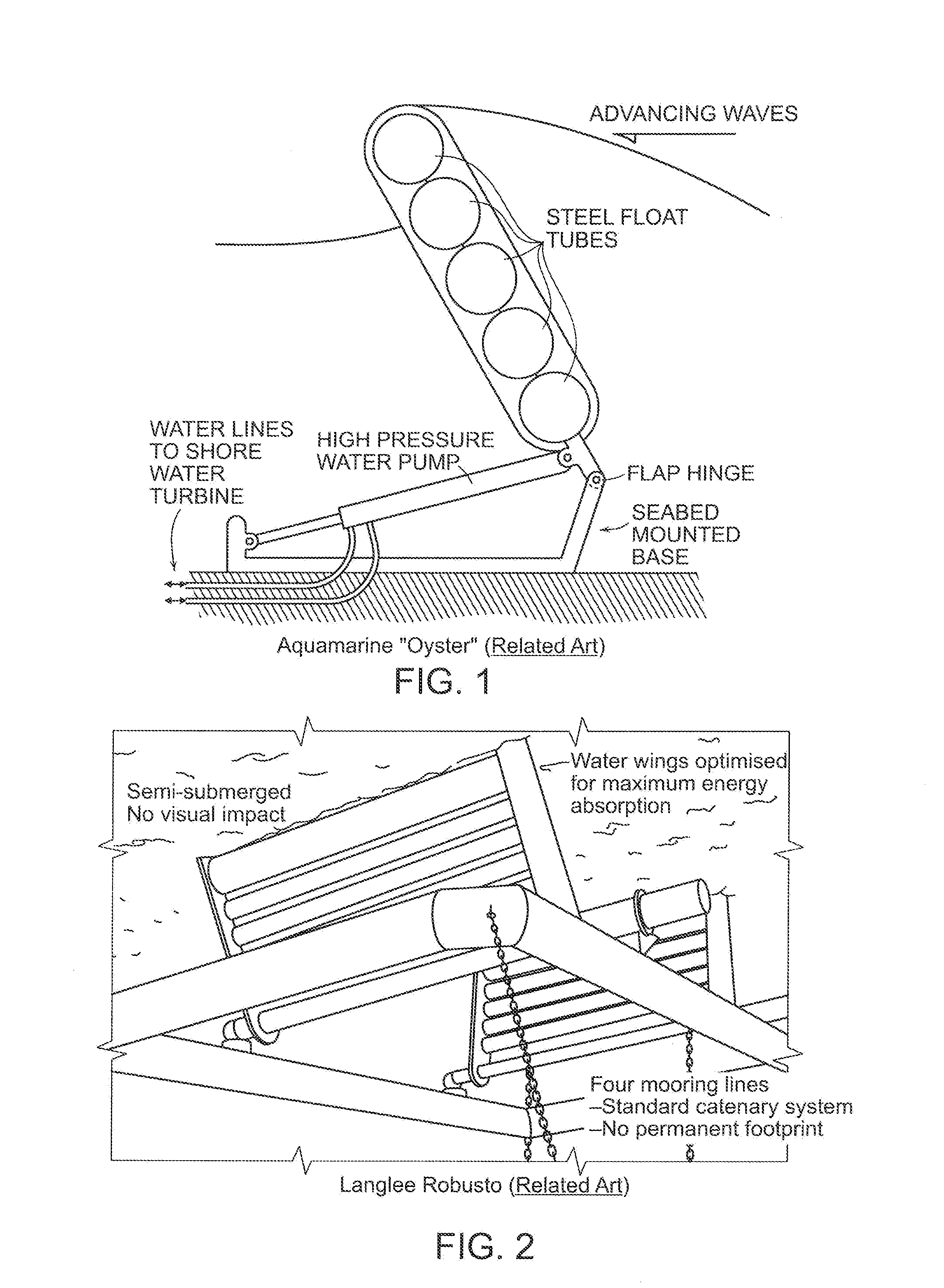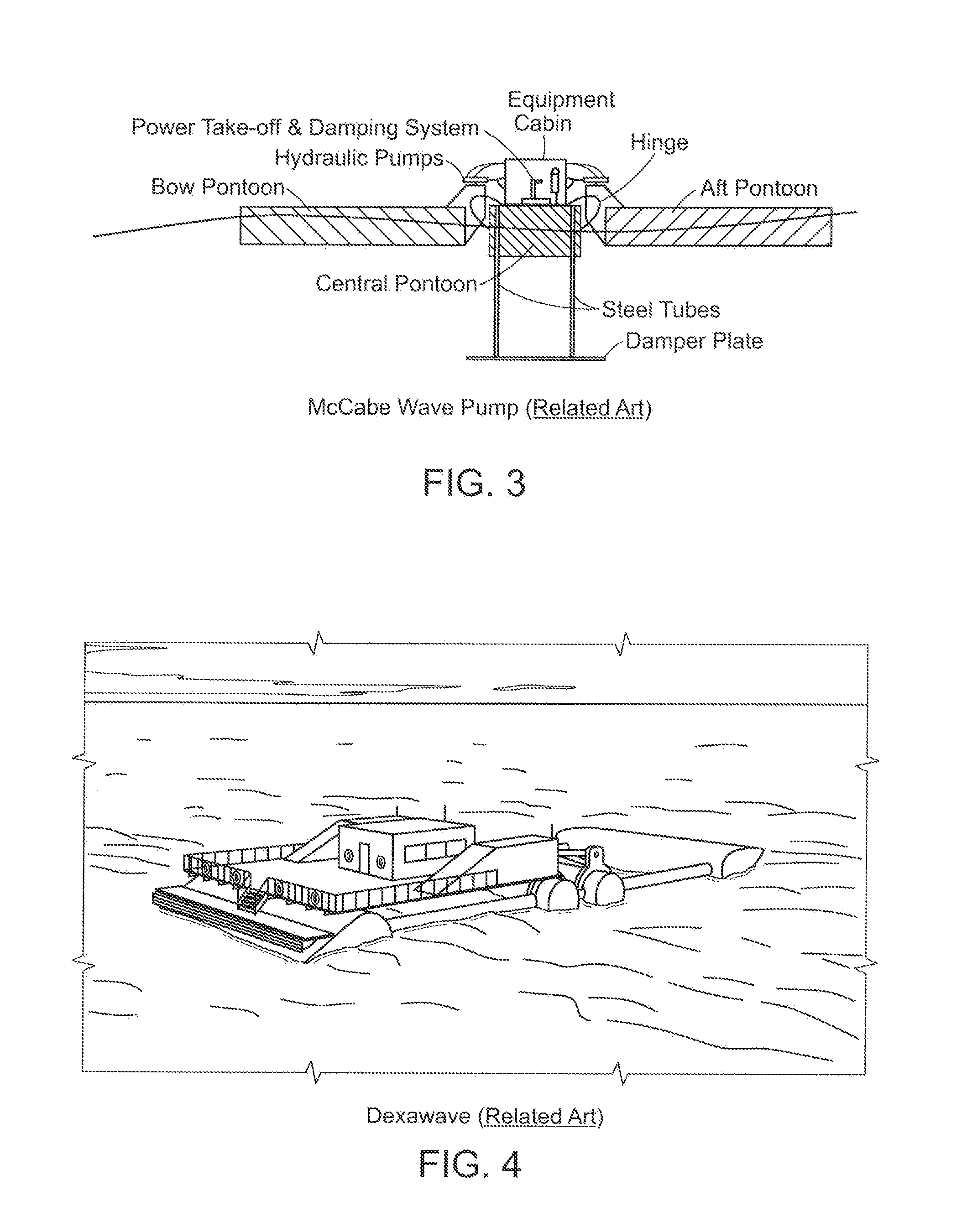Wave Energy Converter With Concurrent Multi-Directional Energy Absorption
- Summary
- Abstract
- Description
- Claims
- Application Information
AI Technical Summary
Benefits of technology
Problems solved by technology
Method used
Image
Examples
Embodiment Construction
[0073]The features and limitations of the Prior Art WECs of FIG. 1 through FIG. 4, inclusively, are previously described in the previous DISTINGUISHING FEATURES OVER THE PRIOR ART section and in my U.S. Pat. No. 8,614,520 and U.S. application Ser. No. 14 / 101,325 of which this is a Continuation. The discussions of those related references are referenced here to provide perspective to the following detailed description.
[0074]FIG. 6 is an embodiment of the present disclosure similar to FIG. 7 in application Ser. No. 14 / 101,325 wherein one or more (two shown) elongated buoyant float(s) or barrier(s), 3 and 60, having a wave front facing and impacting forward face which face may be concave (shown as 1 on the fore float 3), flat (shown as 1 on the aft float 60), or convex (not shown) and being rigid (shown), hinged (not shown) or flexible or compliant (not shown). The float(s) bottom 2 can be flat and angled approximately parallel to the float's direction or arc of motion (as in bottom 2 ...
PUM
 Login to View More
Login to View More Abstract
Description
Claims
Application Information
 Login to View More
Login to View More - R&D
- Intellectual Property
- Life Sciences
- Materials
- Tech Scout
- Unparalleled Data Quality
- Higher Quality Content
- 60% Fewer Hallucinations
Browse by: Latest US Patents, China's latest patents, Technical Efficacy Thesaurus, Application Domain, Technology Topic, Popular Technical Reports.
© 2025 PatSnap. All rights reserved.Legal|Privacy policy|Modern Slavery Act Transparency Statement|Sitemap|About US| Contact US: help@patsnap.com



